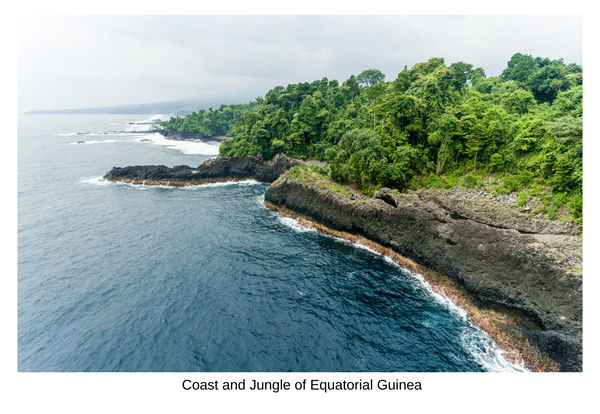 Equatorial Guinea: The Uncharted Gem of Africa
Equatorial Guinea: The Uncharted Gem of Africa
Equatorial Guinea, tucked away in the Gulf of Guinea in Central Africa, is a country of untamed beauty and entrancing cultural tapestry.
Straddling both the mainland and insular regions, it is an amalgamation of rich rainforests, vibrant wildlife, unspoiled beaches, and active volcanic landscapes that weave an alluring call to the adventurous spirit.
Explore Malabo, the country's capital, perched on the rim of a sunken volcano on the island of Bioko. The city serves as a fascinating confluence of colonial Spanish architecture and modern African vibrancy. The Cathedral de Santa Isabel, with its neo-Gothic spires, stands as a testimony to the Spanish influence. A stroll through the city streets provides an immersive experience of local life and culture.
Beyond the city limits, the wild side of Equatorial Guinea unfolds. Bioko's southern highlands are a treasure trove of biodiversity, with a chance to spot endemic species like the Drill monkeys and numerous bird species. The island of Corisco, with its golden beaches and translucent waters, is an undiscovered paradise for beach lovers and water sports enthusiasts.
On the mainland, Monte Alen National Park spreads across vast stretches of rainforest, offering opportunities to spot forest elephants, leopards, and a diverse array of bird species. The Ebebiyin region is dotted with captivating crater lakes, forming a lunar-like landscape that arouses wonder and curiosity.
For a short video introduction of Equatorial Guinea, click below
Visa Requirements
Equatorial Guinea has stringent visa regulations. Almost all visitors need a visa to enter the country. Check with your nearest embassy or consulate for the latest requirements and application process.
Health and Safety
Visitors are recommended to take precautions against malaria and yellow fever. Vaccinations for routine diseases are also advised. The safety situation is generally stable, but like in any travel situation, always exercise caution and follow the advice of local authorities and travel advisories.
Currency
The official currency is the Central African CFA franc (XAF). Credit cards are not widely accepted except in major hotels, and ATM availability is limited. It's advisable to carry enough cash for your stay.
WiFi and SIM Cards
Internet service is available but can be unreliable and slow. Purchasing a local SIM card might be a better option for more consistent connectivity. These are available at the airport or from local vendors.
Last but not least
A little trick for those traveling to Equatorial Guinea: don't miss out on the local music scene. Music is an integral part of the local culture, and the country is particularly known for its vibrant dance styles. Immersing yourself in a live performance can be a magical way to connect with the pulse of Equatorial Guinea. And remember, when you're bargaining at local markets, a smile goes a long way in building rapport.
